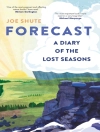Virginia Woolf’s ‘A Room of One’s Own’ and ‘Three Guineas’ stand as seminal extended essays that explore the intricacies of gender, creativity, and societal constraints. Through her distinctively modernist style, Woolf weaves personal anecdotes and literary criticism to advocate for women’s intellectual freedom and economic independence, famously asserting that ‘a woman must have money and a room of her own if she is to write fiction.’ The essays are not only a critique of patriarchal institutions but also reflect the socio-political climate of the early 20th century, punctuating the urgent need for women’s voices in literature and beyond. Woolf, a member of the Bloomsbury Group, was deeply influenced by her own experiences navigating a male-dominated literary landscape. Her intellectual upbringing and the loss of her mother, alongside the struggles of her contemporaries, shaped her understanding of the barriers women faced. These essays were born out of her commitment to feminist advocacy and her desire to inspire future generations of women writers to pursue their artistic ambitions unencumbered by societal expectations. For readers embarking on a journey of feminist thought and literary exploration, ‘A Room of One’s Own’ and ‘Three Guineas’ are essential readings. Woolf’s eloquent prose and piercing insights resonate with anyone interested in the evolution of women’s literature and the broader cultural implications of art, making this collection a poignant and inspiring addition to any library.
A propos de l’auteur
Virginia Woolf, born Adeline Virginia Stephen on January 25, 1882, in London, was an English writer and one of the foremost modernists of the 20th century. Known for her innovative narrative techniques and insightful explorations of the inner lives of her characters, Woolf was a central figure in the Bloomsbury Group, which was a gathering of English writers, intellectuals, philosophers, and artists. Her most famous works include the novels ‘Mrs. Dalloway’ (1925), ‘To the Lighthouse’ (1927), and ‘Orlando’ (1928), as well as the book-length essay ‘A Room of One’s Own’ (1929). In ‘A Room of One’s Own’ along with the sequel essay ‘Three Guineas’ (1938), Woolf addresses the socioeconomic constraints of women and underscores the importance of both financial independence and intellectual freedom for female writers. Woolf’s literary style is characterized by her stream-of-consciousness approach, which sought to capture the complex thoughts and emotions of characters in a way that mimics the human thought process. Her essays, often infused with feminist themes, not only analyze the gender dynamics of her time but also lay down a foundational critique that would become pivotal to feminist literary criticism. Virginia Woolf’s contribution to literature was cut short by her tragic death on March 28, 1941, but her work continues to influence generations of writers and thinkers.












